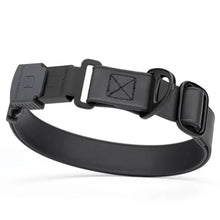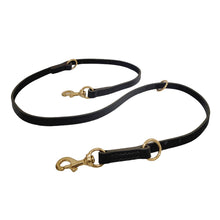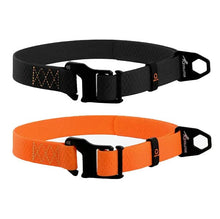9 Common Mistakes German Shepherd Owners Make When Raising A Puppy

Picking out your new puppy is an exciting time. There is nothing cuter than a fluffy bundle of German Shepherd goodness. Quickly, however, reality sets in. German shepherd puppies are a lot of work!
From housetraining, chewed up household items, and establishing a routine, the very first day your adorable puppy enters your home, there are sure to be challenges as well as heart melting rewards.
To help you and your puppy start off on the right paw, you need to set your puppy up for success. To do that, you’ll need a realistic plan and be prepared for your new puppy to join your home and fit into your lifestyle.
To get started, there are numerous books on puppy training that you can buy, free training advice online, and many opinions on the best way to raise a German Shepherd dog. You can also learn a lot from the mistakes that other German Shepherd owners have made and most are more than happy to share their experiences.

Some of the most common mistakes that people make when raising a German shepherd puppy are:
- Getting a puppy that is too young
According to the American Kennel Club, the best time for a puppy to leave its mom and littermates is at eight to twelve weeks old. As tempting as it is to want to take your puppy home before eight weeks, keep in mind, most reputable breeders don’t allow it.
Puppies develop many life skills from their mom and littermates. When placed in their new home too soon, they can develop anxiety, lack confidence, suffer from health issues, and have many more behavior problems.
If a confident, healthy, well socialized dog is your goal, the wait is worth it. It’s also a big red flag if a breeder or rescue is pushing puppies younger than eight weeks old, unless there is a very valid reason.

- Choosing the wrong dog
Let’s face it, there’s nothing more impressive than to watch a high-octane working dog doing their job. Whether it’s taking down criminals, sniffing out drugs, searching for the lost, or protecting our soldiers by sniffing out explosives, these working German Shepherd dogs are extraordinary.
However, the average dog owner doesn’t need a working line German Shepherd. Unless you plan to get involved in dog sports or to continually train and work your dog every day, you probably don’t need a dog with off the chart’s energy and super high prey drive.
Trying to channel the energy of a true working line dog into the average pet home is unfair to the dog and often results in destructive behavior by the dog. There have been many frustrated owners who have ended up trying to rehome a dog with behavior problems or worse, dump them at a shelter. Before you choose a puppy, talk to breeders, rescues, and other experts to find the perfect fit for your home.

- Not puppy proofing the home
German shepherd puppies are smart, full of curiosity, and love to chew. Combine these qualities and you’ve got a puppy that will explore with their mouth. Left to their own devices, they will inspect every inch of your home and chew anything that catches their eye.
For the safety of the puppy and your belongings, it’s imperative that your home be puppy proofed before the puppy moves in. You’ll want to pick up everything from the floors and tabletops, prevent their sharp teeth from reaching electric cords, keep medications, household cleaners, and other chemicals out of reach, keep laundry and shoes picked up, be sure all trash is kept in puppy proof cans, and have a safe storage area for their food.

- Not buying the right dog gear
To make the transition into your home easier, there’s some basic dog gear you’ll want to have on hand before you bring your puppy home. As soon as your puppy arrives, they’ll need certain things, like a safe space to play and relax while you have your eyes off them.
A few things you won’t want to be without include a leash, collar and/or harness, crate, exercise pen, dog dishes, food, chew toys, training treats, and cleaning supplies to clean up potty accidents.

- Not being prepared for the pupping biting
Like all puppies, German Shepherds like to chew. But given that they are herding dogs, they are mouthier than most breeds. Many first-time German Shepherd owners have been caught off guard by just how much their adorable puppy likes to bite and how razor sharp their teeth are.
Although a small puppy nipping fingers and ankles can be cute, German Shepherds quickly start teething and soon grow into rowdy adolescents who may learn that biting is a fun game. This behavior can easily escalate and hurt someone.
German Shepherd owners must teach their puppies that it’s not okay to bite and be consistent with this rule. Chew toys can be used to redirect biting onto something acceptable. They also need plenty of chew toys to offer to teething puppies.

- Allowing resource guarding behavior
German Shepherds are naturally protective and easily given to resource guarding. Owners should never allow their puppy to guard anything including their food, space, or favorite toy. Some signs of resource guarding include protecting an item, hard stare, laying on an item, growling, lunging, air snapping, chasing, and biting.
Patricia McConnell defines resource guarding as “any behavior that discourages another to take, or get too close to, an object or valued area in the dog's possession. This behavior could be as simple as a look, head turn, or slight baring of the teeth.”
To prevent resource guarding from happening, it helps to teach them they get better stuff when they give up their good stuff. Some ideas on how to prevent resource guarding include hand feeding and treating your puppy from their food bowl while holding it in your lap, trading up their toys and treats for higher value items, teaching them to allow you to take it, drop it and leave it, teach them to place, and letting them enjoy high value chews in peace.

- Failing to socialize
Young German Shepherds not only need to learn the house rules, but they also need to be exposed to people and places outside the home so they grow up to be a confident dog. This should be done in a safe way, so they have good experiences and are not forced into fearful situations or hurt by other animals and people.
Before your dog has its shots, you can start socializing by having people come to your home, taking your pup on car rides, drive throughs, and vet visits. Once your puppy has its shots, you can expose your puppy to all sorts of people and situations, such as people of different genders, colors, races, ages, sizes, disabled (wheelchairs, crutches, etc.), other pets and animals, various places, new sounds and smells, bicycles, skateboards, and more.

- Not keeping to a schedule
Puppies do best when they are kept on a schedule. When a puppy has regular mealtimes, potty breaks, walks, play time, and bedtime, it makes all training much easier and sets the puppy up for success. Conversely, lack of a schedule or an unpredictable environment can cause your German Shepherd puppy to develop behavior problems, cause training setbacks, and potty-training accidents.
By sticking to a realistic routine, your dog will be calmer, happier, and grow up to be a confident dog. From the day you bring your dog home, commit to schedule that includes predictable mealtimes, potty breaks, training time, naps, play time, and bedtime. Avoid unrealistic schedules, such as expecting a young puppy to not have frequent potty breaks or to skip meals and drinking water.

- Not starting training immediately
German Shepherd puppies love to learn to please their owners. Puppy training should begin the day the move into your home. By starting training early, you will help your puppy develop and grow into the amazing dog they were born to be.
Young puppies can easily learn basic commands such as sit, down, wait, come, and more. As they master these commands in a fun and rewarding environment, they’ll enjoy learning more and more, then sky is the limit on what they may be able to achieve!
We hope you enjoy this article. As always, please feel free to share with your friends.
You might also like: What To Do The First Two Weeks Of Having A German Shepherd Puppy






















